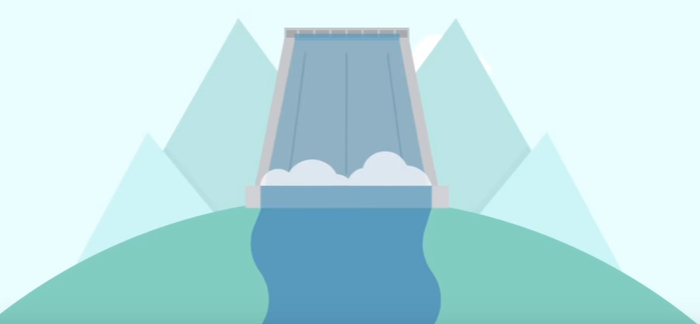Humanity has used the force of water falling to create energy at some level for centuries. Whether it has come from a watermill or from Hoover Dam, the constant flow of running water moves turbines that can create kinetic energy. This process is very friendly on the environment because it emits no carbon dioxide as energy is created, allowing entire countries to have the power that they need. Here is a comprehensive look at some other hydropower advantages and disadvantages to consider when deciding where you stand on this source of energy.
4 Advantages of Hydropower
1. It is a completely renewable source of power.
Hydropower is renewable because the planet produces water on a continuous basis. Water evaporates and it falls back to the surface, which implies we can’t completely use it up. Some regions may encounter drought and other difficulties which could limit hydropower production over time, but even then other plants could step up their own production.
2. It doesn’t contaminate the environment.
Creating power from gravity and water does not contaminate the environment in any way. The energy produced doesn’t create greenhouse gases. The only contamination that occurs, in fact, comes from the initial building process of the plant, dam, or other structures and compared to the ongoing pollution of fossil fuels, the amount is rather negligible.
3. It provides a stable source of energy.
One of the most stable forms of energy that we know of today comes from hydropower. That’s why some states like Washington or countries like Egypt have hydroelectricity as their primary energy source. It is a tremendous asset to have because the energy produced is very dependable, exceptionally stable, and this provides societal consistency for power use at the individual level.
4. They offer a low cost proposition that is highly adaptable.
Hydropower has one of the lowest ongoing operating costs in the industry today. It also has low maintenance requirements once installed, which further contributes to the lower overall costs. Once the initial installation costs are approved, the energy resource of gravity and water can match demand levels easy, the costs predictable, and this allows everyone to have the energy they need at any given time.
4 Disadvantages of Hydropower
1. There is always some level of environmental damage which occurs.
Water that is dammed will backup into a lake, destroying local habitats. Water flow alterations can put stress on the surrounding environment. Wildlife behaviors can be changed, which may even include one-way migratory movements away from the hydropower station. Without care, this source of power can be very abusive to wildlife and that can change how people live.
2. The initial expense cannot be ignored.
Although every local economy will eventually make their investment back over time, the initial expense of a hydropower plant cannot be ignored. Some communities may not be able to afford the investment or have the credit available to finance the construction. If financing is required for the hydropower plant, then it may be more than a generation before the costs are actually paid off.
3. It creates the potential for a disaster.
What would happen if Hoover Dam broke? Two additional dams, Davis and Parker, would also break. The communitiies of Lake Havasu City, Needles, Blythe, Laughlin, and Bullhead City would also be at risk. There’s the potential for over 100,000 casualties. Hydropower often creates the potential for a disaster which must be assumed by the population centers living near the dam or other structure. Failures don’t happen often, but if they were to happen, it would be catastrophic.
4. It changes water access for downstream communities.
If water is restricted at one community, then the next community downstream will have less access to water for their own consumption. Altering the flow of a river can even become an international issue if a large enough dam is built upstream. These structures might control flooding and provide power, but they can also create political issues which can become divisive and even potentially lead to war under the right circumstances.
These hydropower advantages and disadvantages are just some of the key points to consider when looking at this renewable resource. What are your thoughts about hydropower? We’d love to hear you share you thoughts about these key points and others that may be important to you, but not covered here.




